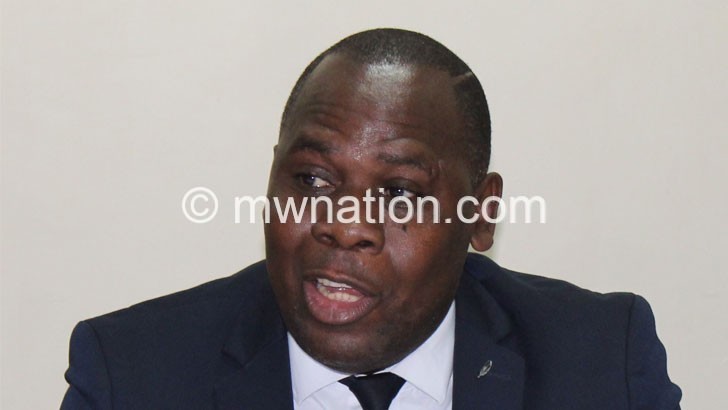HRDC queries govt on human rights plan
The Human Rights Defenders Coalition (HRDC) has written the Ministry of Justice expressing its disappointment over government’s failure to implement the National Human Rights Action Plan 2017-2021 developed in 2016.
For five years now, the blueprint, meant to protect and promote of human rights in the country, has never been approved, launched or even used as a guiding document in implementing various activities to promote and protect human rights.

Government developed the policy document in consultation with both local and international organisations under the coordination of the Ministry of Justice and the Malawi Human Rights Commission (MHRC).
In the letter dated March 4 2022, HRDC chairperson Gift Trapence said it was surprising that despite all the efforts that went into the development of the document, nothing substantial has come out of it.
He said they felt the non-implementation of the already developed human rights plan as a misuse of resources and also a missed opportunity for the promotion and protection of human rights in Malawi.
“The action plan had a clear roadmap and strategies on how to protect the rights of the most vulnerable within our communities. Malawi cannot afford not to have this guiding document,” reads part of the letter which has also been copied to MHRC.
Trapence observed in the absence of the plan, the country was challenged in terms of implementation of different instruments that help to protect and promote human rights in Malawi.
“There is no coordination among stakeholders and there are no follow-ups in the implementation of international human rights instruments and even our own domestic statutes. ,” he said.
HRDC has since called on government to review the document with an aim of developing another blueprint that could be implemented over a new five-year cycle.
Among others, the scope of the action plan covered protection and promotion of equity education, the right to health, land rights, social cultural rights, the right to adequate housing, the right to food (such as food security and nutrition) and vulnerable children.
Others include right to fair trial and access to justice, human rights and policing, property rights, child labour, freedom of expression and access to information, freedom of assembly, women rights and gender equality (violence against women, girls and men), combating trafficking and employment and labour-related issues.
Then there are others such as those affecting persons with disabilities (including albinism), religious minorities, older persons, sexual monitories (LGBTI) and people living or affected by HIV and Aids.
According to the plan, Malawi first adopted the plan in 1994, shortly after the new democratic era began which covered the years from 1995 to 1996 while the second was adopted for the period 2004 to 2011.





